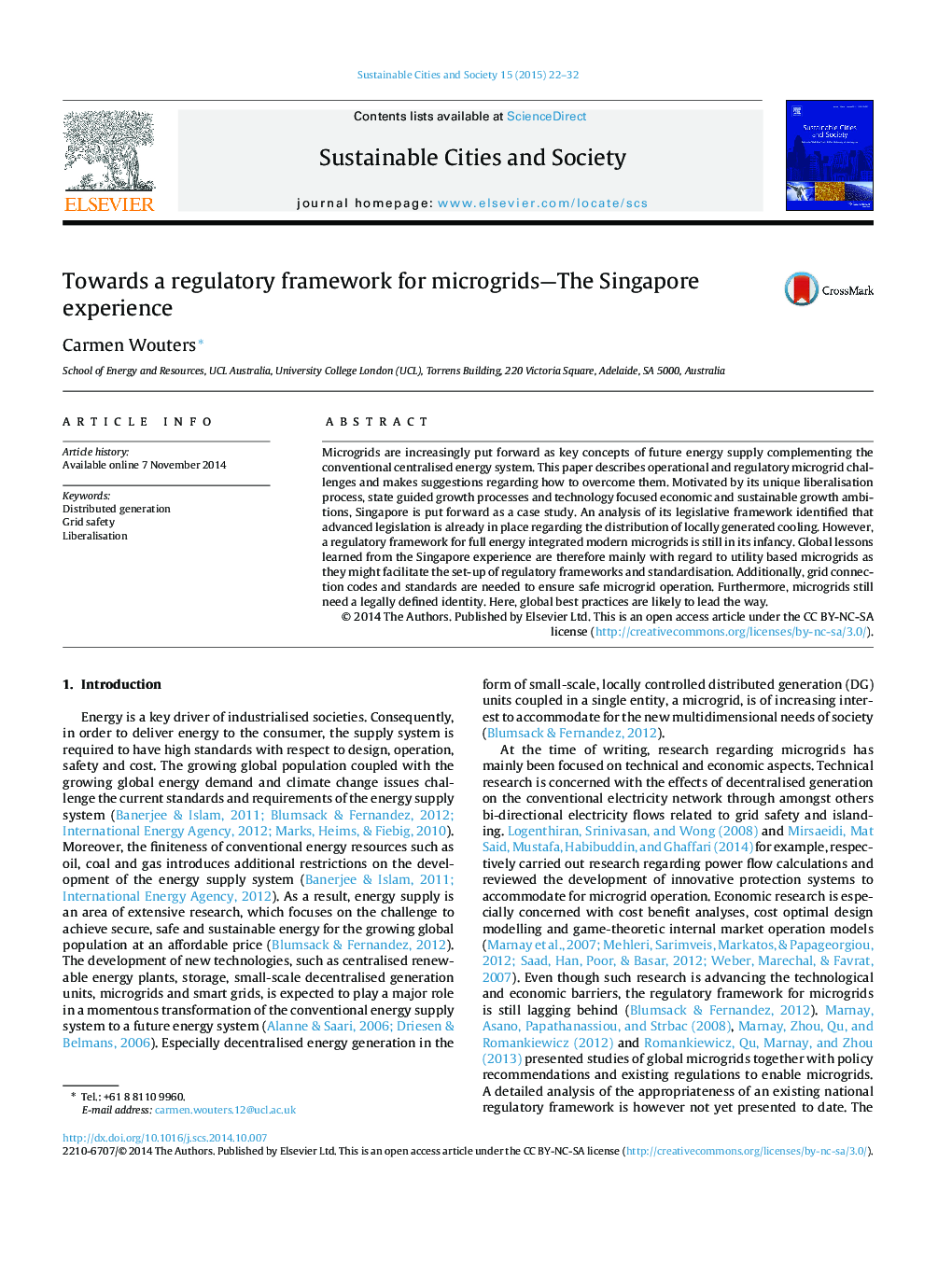| Article ID | Journal | Published Year | Pages | File Type |
|---|---|---|---|---|
| 6776414 | Sustainable Cities and Society | 2015 | 11 Pages |
Abstract
Microgrids are increasingly put forward as key concepts of future energy supply complementing the conventional centralised energy system. This paper describes operational and regulatory microgrid challenges and makes suggestions regarding how to overcome them. Motivated by its unique liberalisation process, state guided growth processes and technology focused economic and sustainable growth ambitions, Singapore is put forward as a case study. An analysis of its legislative framework identified that advanced legislation is already in place regarding the distribution of locally generated cooling. However, a regulatory framework for full energy integrated modern microgrids is still in its infancy. Global lessons learned from the Singapore experience are therefore mainly with regard to utility based microgrids as they might facilitate the set-up of regulatory frameworks and standardisation. Additionally, grid connection codes and standards are needed to ensure safe microgrid operation. Furthermore, microgrids still need a legally defined identity. Here, global best practices are likely to lead the way.
Keywords
Related Topics
Physical Sciences and Engineering
Energy
Renewable Energy, Sustainability and the Environment
Authors
Carmen Wouters,
